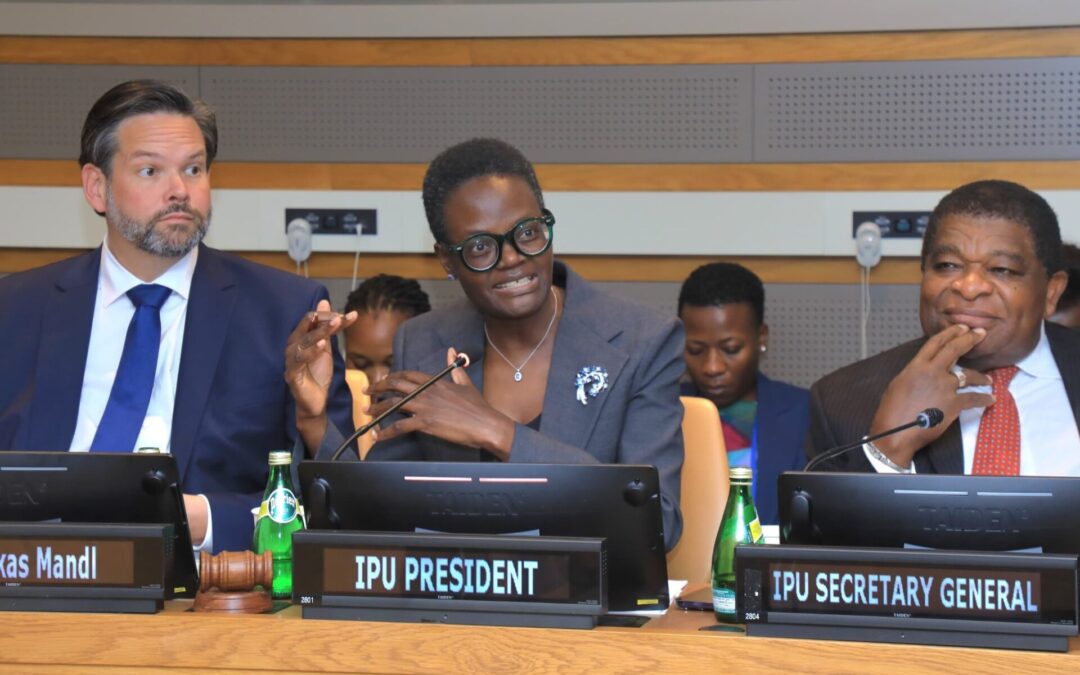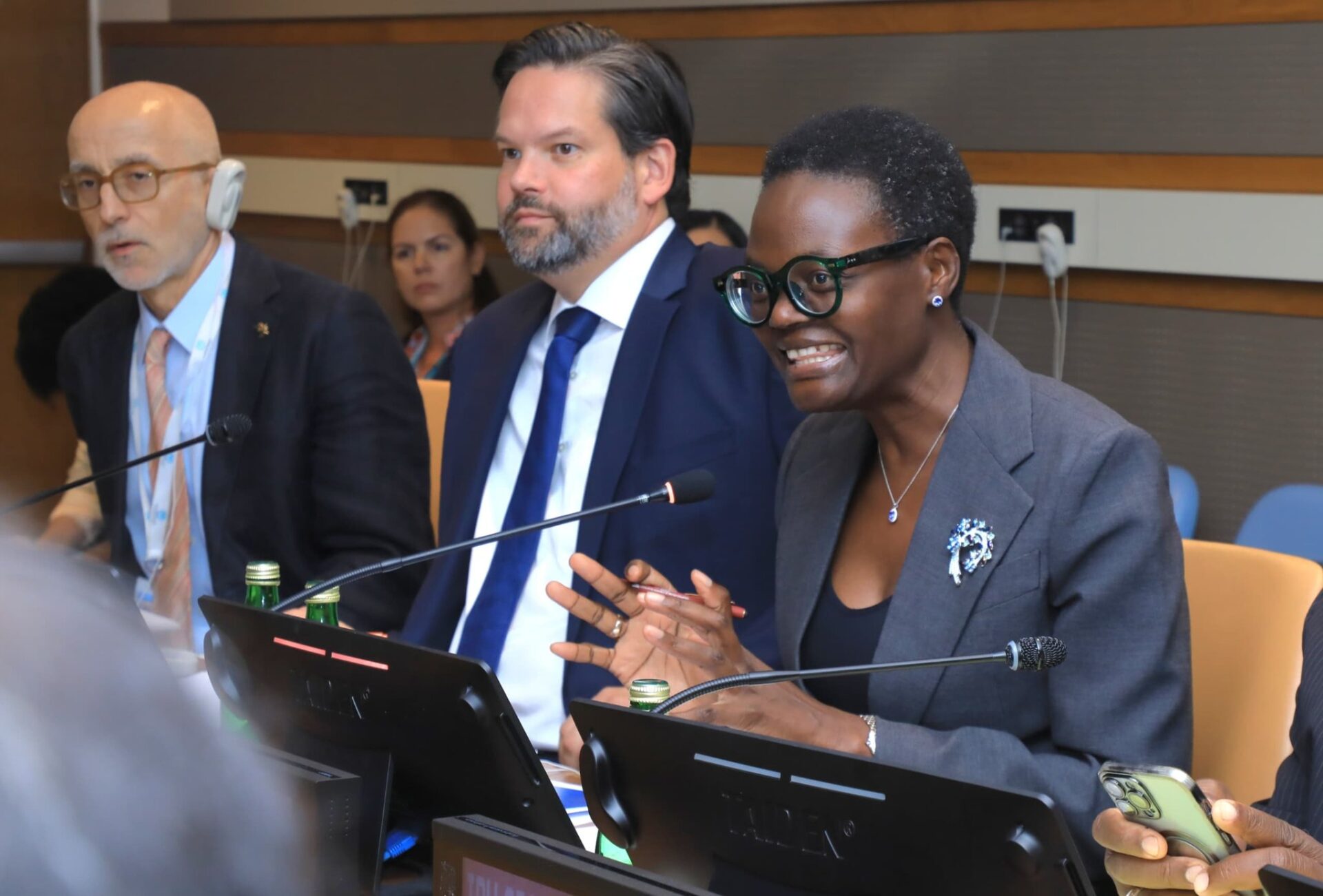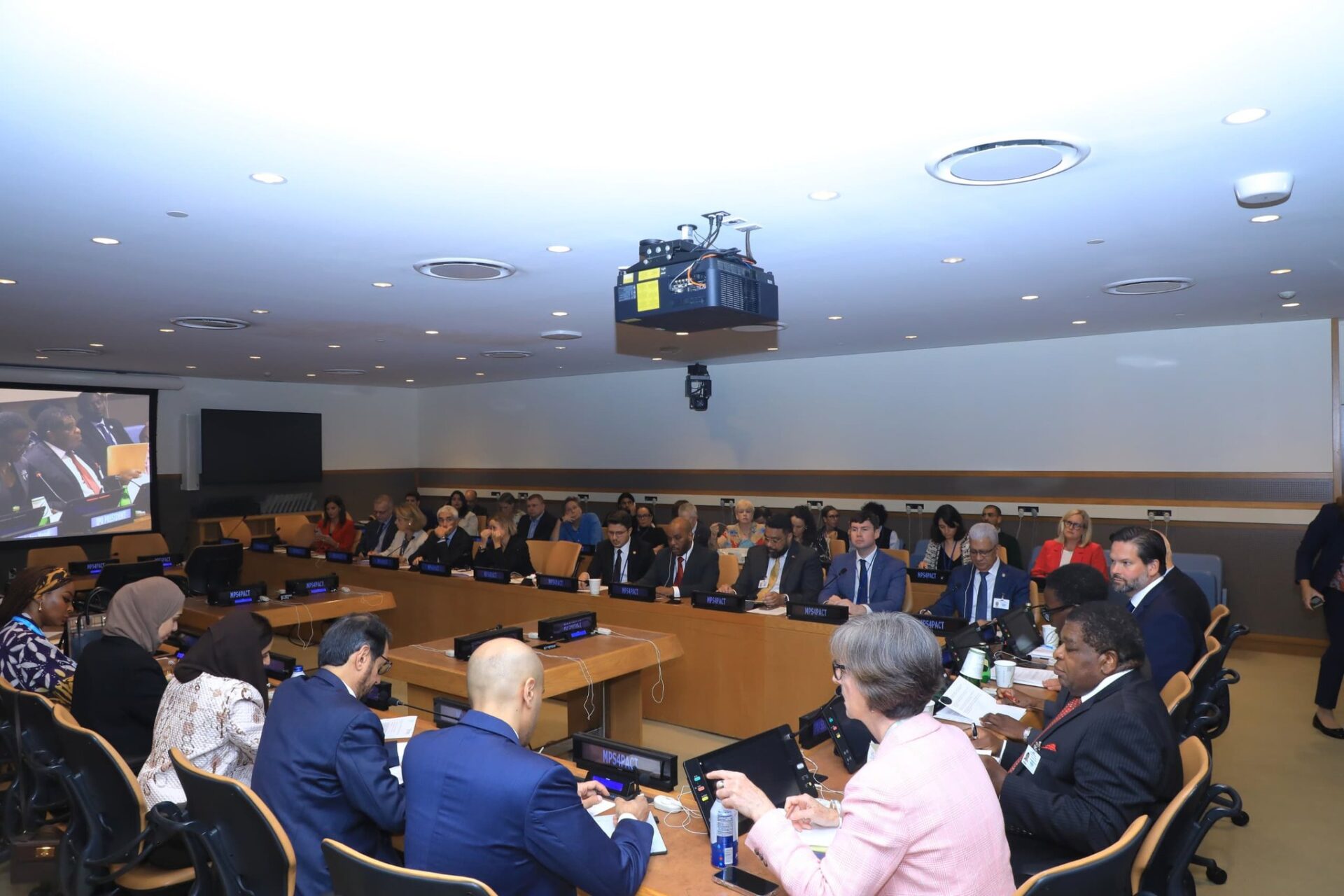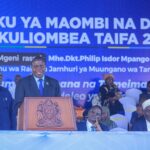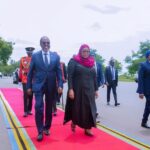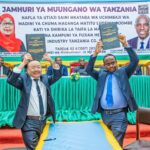On 20 September 2024, the Speaker of Parliament and President of the International Parliamentary Union (IPU), the Honourable Dr. Tulia Ackson, presided over a parliamentary session held during the 79th General Assembly of the United Nations. The session was held at the United Nations Headquarters in New York City, USA.
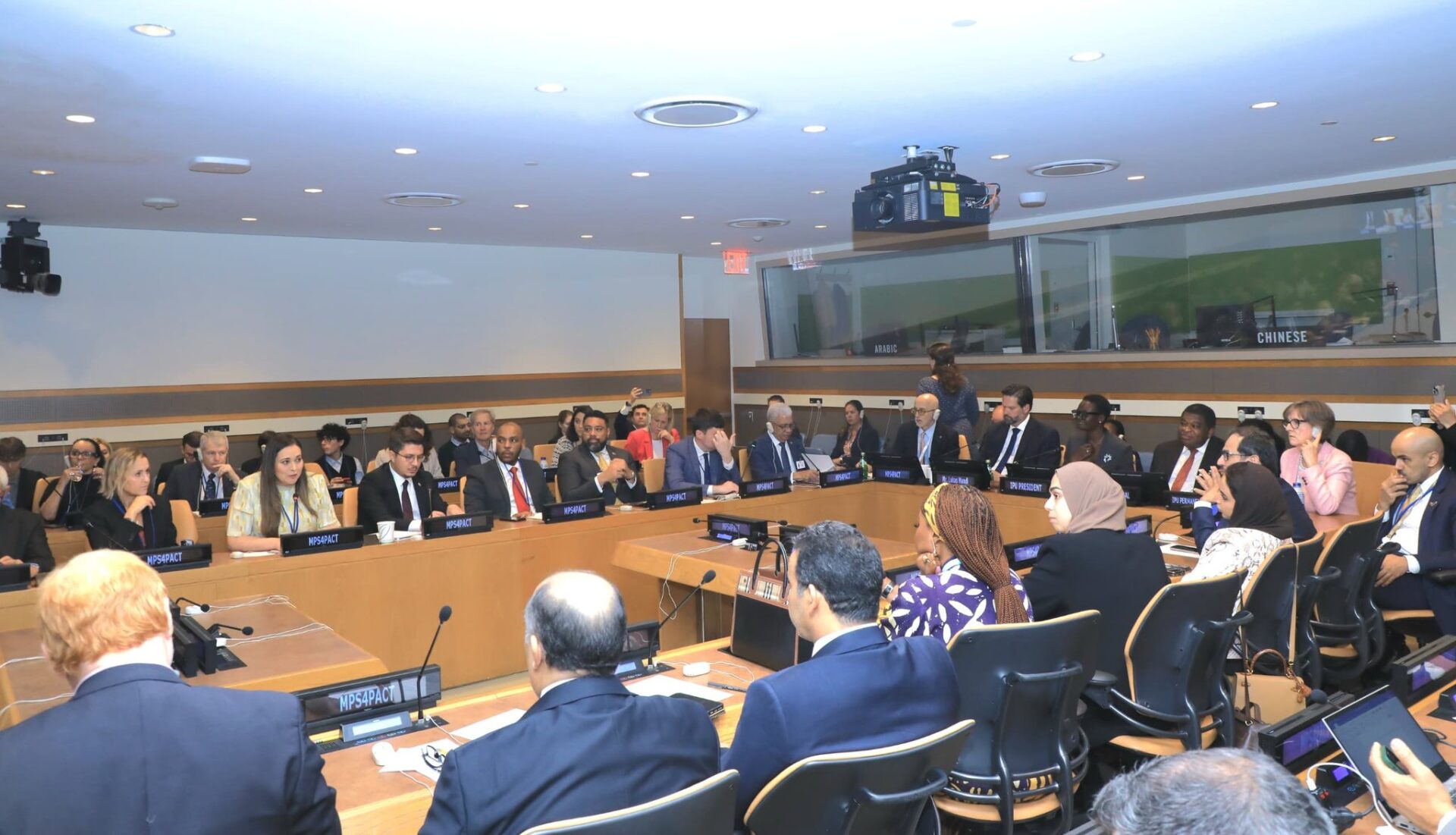
In her keynote address, Dr. Ackson underscored the pivotal role of parliamentary diplomacy in fostering peace, security, and sustainable development. She underscored the necessity for parliaments to collaborate in order to confront global challenges, including climate change, poverty, and inequality.
Additionally, Dr. Ackson advocated for enhanced representation of women and youth in parliamentary bodies across the globe. She posited that a more diverse and inclusive parliament is better positioned to represent the needs and aspirations of all citizens.
The parliamentary session was attended by parliamentarians from over 150 countries. The participants engaged in a robust debate on a plethora of issues, including the role of parliaments in promoting gender equality, combating climate change, and strengthening democracy.
The session proved to be a fruitful endeavour, offering a priceless chance for parliamentarians to exchange their experiences and deliberate on the challenges and prospects confronting parliaments in the 21st century.
Speaker of Parliament, Tanzania; President of the International Parliamentary Union (IPU)
About Dr. Tulia Ackson
Dr. Tulia Ackson is a Tanzanian politician who has held the position of Speaker of Parliament since 2022. Additionally, she serves as President of the International Parliamentary Union (IPU). Dr. Ackson is a staunch proponent of women’s rights and gender equality. Additionally, she has been an outspoken critic of corruption, advocating for enhanced transparency and accountability within the government.
Early Life and Education
Dr. Tulia Ackson was born on 23 November 1976 in Bulyaga Ward, Tukuyu Division, Rungwe District, Mbeya Region. Tulia Ackson completed her primary education at Mabonde Primary School in Tukuyu between 1984 and 1990, attaining a certificate of primary education upon its completion. She was selected to join Loleza Girls Secondary School in Mbeya, where she obtained a certificate of secondary education in 1994 and subsequently an Advanced Certificate of Secondary Education at Zanaki Girls Secondary School. She subsequently enrolled at the University of Dar es Salaam, graduating with a Bachelor of Laws degree in 2001. Tulia Ackson obtained a Master’s degree in Law in 2003. In 2004, she undertook and successfully completed the Bar examinations, thereby obtaining a Certificate for Legal Practice in Tanzania. In 2005, she was admitted to the University of Cape Town for doctoral studies, which she completed in 2007, obtaining a Doctorate in Philosophy.
Political Career
In 2001, Dr. Tulia Ackson commenced her tenure at the University of Dar es Salaam, initially assuming the role of Postgraduate Teaching Assistant. Following the successful completion of her Master’s degree in Law, she was promoted in 2004 to the position of Assistant Lecturer. In 2007, she was promoted to the rank of lecturer following the attainment of a doctorate. In 2009, she assumed the role of Associate Dean of the University of Dar es Salaam School of Law, a position she held for a total of six years, comprising two consecutive three-year terms. In 2011, she was promoted to the rank of Senior Lecturer. In February 2014, Ackson was appointed by the President of Tanzania, Jakaya Kikwete, to serve as a member of the inaugural Constituent Assembly of Tanzania, representing higher learning institutions. She is a member of the Tanganyika Law Society, the East African Law Society, and the Southern African Development Law Society.
Dr. Tulia Ackson is an expert in the following legal fields: social security law, labour law, wildlife management laws, trusts, probate and administration of estates law, project financing and mining law.
Dr. Tulia Ackson’s experience also encompasses general commercial agreements, including joint ventures, agency agreements, distributorship agreements, service agreements, mergers and acquisitions, initial public offerings, management buy-outs, and matters pertaining to employment, commercial, and competition law.
Dr. Tulia Ackson is a practising lawyer with over a decade’s experience in the field of employment law. She is a prolific contributor to literature on matters of employment law, and her practice encompasses the full spectrum of Tanzanian employment law, from the initial stages of hiring and firing to the resolution of disputes between employers and employees.
Speaker of Parliament
Dr. Tulia Ackson (born 23 November 1976) has served as the Speaker of the National Assembly of Tanzania since 2022. She was appointed as a Member of Parliament by President John Magufuli. On 27 October 2023, she was elected President of the Inter-Parliamentary Union (IPU) at a meeting convened in Luanda, Angola, where she received a significant majority of the votes cast.
In her capacity as Speaker of Parliament, Dr. Ackson bears responsibility for the supervision of the legislative process and the guarantee of fair and transparent parliamentary operations. Additionally, she has been a vocal proponent of the rights of women and children.
President of the IPU
In 2023, Dr. Ackson was elected to serve as President of the IPU. The IPU is a global organisation of parliaments that is dedicated to the promotion of peace, democracy and sustainable development. In his capacity as President of the IPU, Dr. Ackson has been a prominent proponent of the role of parliaments in addressing global challenges, including climate change and poverty.
About the IPU
The IPU represents the global organisation of parliaments. The IPU was established in 1889 and is headquartered in Geneva, Switzerland. The IPU’s mission is to advance the causes of peace, democracy and sustainable development through the medium of parliamentary diplomacy. The IPU comprises over 170 member parliaments from across the globe.
Objectives of the IPU
The IPU’s stated objectives are as follows:
The IPU’s objectives can be broadly categorised as follows:
1. The promotion of peace and international cooperation
2. The strengthening of democracy and the rule of law
3. The support of sustainable development
4. The advancement of human rights
5. The empowerment of women and youth
Activities of the IPU
The IPU engages in a diverse array of activities to fulfil its stated objectives. Such activities include, for example:
* The organisation of conferences and meetings, which facilitate the participation of parliamentarians from across the globe in discussions on global issues.
* The provision of technical assistance to parliaments, with the objective of enhancing their capacity.
* The undertaking of research on parliamentary issues.
* The publication of reports and other resources on parliamentary best practices.
Membership of the IPU
The IPU is open to all parliaments that meet the following criteria:
In order to qualify for inclusion in the IPU, a parliament must meet the following criteria:
1. It must be a representative body.
2. It must be elected by universal adult suffrage.
3. It must be independent of the executive and the judiciary.
About the UN General Assembly
The United Nations General Assembly is the principal deliberative, policy-making, and representative organ of the United Nations. It is composed of all 193 Member States of the United Nations. The General Assembly convenes on an annual basis in New York City, USA.
Functions of the General Assembly
The General Assembly is responsible for a diverse array of duties, including:
The General Assembly engages in discussions and formulates recommendations on international issues. It adopts resolutions on a diverse array of matters, including peace and security, human rights, and sustainable development. Additionally, it approves the United Nations budget and elects members to the Security Council and other UN bodies.
Powers of the General Assembly
The General Assembly is vested with the authority to:
The General Assembly is empowered to make recommendations to the Security Council on matters pertaining to peace and security. It is also vested with the authority to adopt resolutions on a plethora of issues, including peace and security, human rights, and sustainable development. Furthermore, the General Assembly is entrusted with the responsibility of approving the UN budget and electing members to the Security Council and other UN bodies.
Tanzania Media
- Kanyala Ferry Launch: TEMESA’s New Service for 15,000 Sengerema Residents (Mwanza) - 18 August 2025
- Russia-Tanzania Naval Cooperation: How the Smolny Training Ship Boosts Dar es Salaam’s Maritime Security - 18 August 2025
- Tanzania’s ICGLR Commitment: Stabilising the DRC & Great Lakes Region - 18 August 2025

